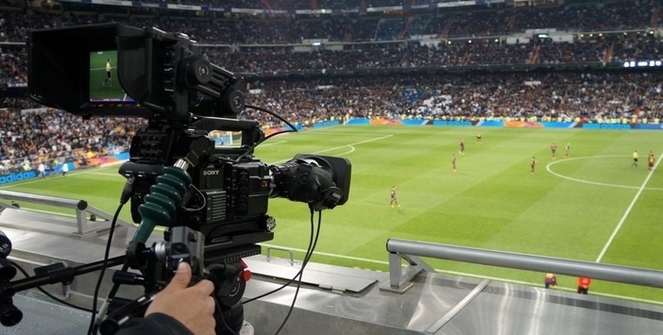After the decision by Beinsports on Friday, July 30, to seek protection under the commercial court, the Professional Football League (LFP) once again finds itself in a delicate position.
A dramatic TV saga worthy of the best Netflix series. The ingredients of the TV Rights fiasco are well known. A pandemic that heavily impacts the finances of clubs, a deal too good to be true that vanishes, leading to a judicial guerilla. One might be amused by this well-crafted scenario but nearly a year after the Mediapro blunder, French football remains mired in a conflict that seems to have no end in sight.
A quick recap: after Mediapro’s defection and the promised billion, the LFP and its president Vincent Labrune had to auction off the rights claimed by the Sino-Spanish illusion during the first call for tenders, accounting for 80% of French football. In a bleak economic climate, hoping for an equivalent sum was utopian. The League had two financial equivalents on the table: the classical solution with historical actors, Canal+ and BeINsports (already holding one lot) and the tempting offer from a new globally renowned entrant, Amazon. The offers were evenly matched, but Vincent Labrune chose the novelty of Amazon, inciting the ire of his former allies.
A foreseeable situation?
In the current scheme, the American e-commerce giant pays for 8 matches at €290 million per year. Meanwhile, as a vestige of the first “golden deal”, Canal and BeIN must pay a sum of €332M for two matches that do not include the 20 best L1 fixtures.
It was hard to imagine Canal accepting this without protest. After a statement from the encrypted channel indicating it was abandoning its sublicense for the two matches (owned by Beinsports), a vast domino effect was set in motion. The consequences: yet another cross-judicial battle, with BeIN suing Canal and then LFP suing BeIN, resulting in a host of proceedings, each party asserting their rights.
Nevertheless, Beinsports’ petition to the commercial court has a direct impact: it freezes the payment of the first installment to the LFP (€55M) while risking a “black screen” less than a week before the L1 season resumes.
Can we hope for a happy ending?
This guardianship clearly indicates the determination of the Qatari channel not to be the fall guy, following the violent withdrawal of their partner Canal+. After the bitter outcome of the Mediapro conciliation, there is a real risk of setting a legal precedent. This catastrophic scenario would likely lead to a new call for tenders, and given the prevailing animosity and market inertia, it would be illusory to expect a sum close to €332M.
French clubs, most of which are already on the brink, could not withstand another loss of profits related to TV Rights.
Ultimately, we can question the choice made in favor of Amazon. While it may prove very interesting in the long term, it could have dire short-term consequences. In this sense, the first decisions made by the Seattle firm have not been reassuring to Vincent Labrune. The additional subscription fee of €12 (Prime Video offer) has raised some eyebrows within the LFP, which is concerned for the visibility of its flagship product. The scars of the Telefoot* experience?
Stay tuned this week for the next episode among these former friends now engaged in a ruthless war.
*Telefoot, the short-lived channel created by Mediapro that only lasted 6 months last year.


